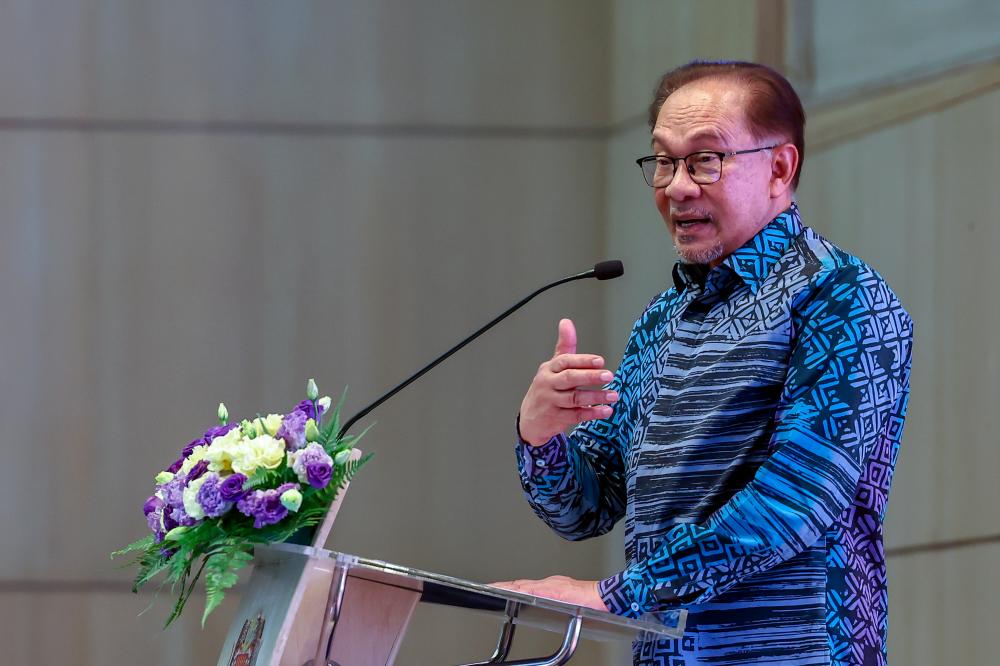PUTRAJAYA: Prime Minister Datuk Seri Anwar Ibrahim wants more frequent monitoring and enforcement to be carried out to address the shortage of local white rice (BPT) in the market.
Anwar, who is also the Finance Minister, said the monitoring and enforcement approaches also required changes to ensure a more effective distribution of BPT.
“I personally have heard the concerns raised by traders regarding the shortage of BPT,” he said at the Finance Ministry’s assembly here today.
ALSO READ: Strict enforcement needed to ensure affordable imported white rice prices
On the recent Special Meeting of the National Action Council on Cost of Living (NACCOL), Anwar said the government’s firmness in addressing the issue of rice prices and supplies had been evident, leading to a decrease in the market prices of imported white rice (BPI).
“Alhamdulillah, the prices have dropped by RM3, or by RM2 at some places. Basically, between RM2 and RM3, and that’s a lot for buyers and regular consumers,” he said.
Regarding the shortage of BPT in the market, Anwar said the NACCOL meeting also revealed that the country has 150,000 tonnes of local white rice to distribute but it is not enough for everyone.
At present, he said BPT is sold and distributed by the Federal Agricultural Marketing Authority (FAMA) and the Farmers Organisations Authority (LPP) at a price of RM26 per pack of 10 kilogrammes (kg).
“In reality, our (Malaysia) rice, sugar and crude oil prices are the cheapest in Southeast Asia and this fact is not being emphasised,” he said.
On March 19, the Ministry of Agriculture and Food Security (KPKM) announced that the retail prices of imported white rice (BPI) would be reduced between RM2 and RM3. It took effect yesterday.
The current retail price of BPI in the market is between RM38 to RM45 for a 10kg pack and with the announcement of the new price range, the price for the 10kg pack would drop to RM35.
Meanwhile, in his post on Facebook, the Prime Minister said that the MADANI Government is standing firm on ensuring that the people will not be pressured by those who want to rake in excessive profits, especially in the sale of daily necessities such as rice.
He said the government will continue to be consistent with the approach of retargeting its assistance and subsidy to ensure that it reaches the people in need and reflects the concept of fairness.
“If we know that the bulk subsidy approach used before had also benefitted the super-rich and foreign citizens, then why would we want it to continue?
“That’s why the subsidy must be retargeted to the hardcore poor and marginalised communities, and this of course includes the urban and rural poor,” he said.
READ MORE: Imported white rice prices to drop by RM2-RM3 effective tomorrow









